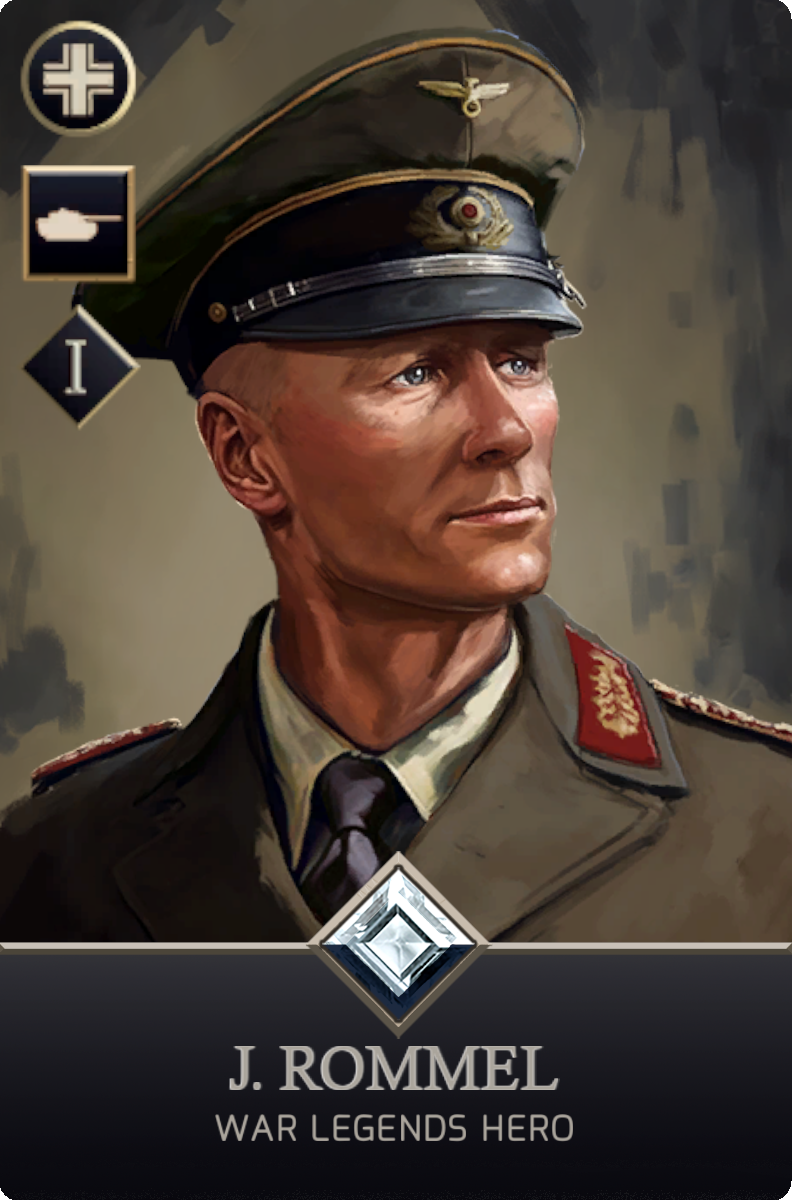


Hero Background
Johannes Erwin Eugen Rommel was born on 15 November 1891 in the town of Heidenheim an der Brenz in the Kingdom of Württemberg in the German Empire.
From a middle-class family, he was attracted to the growing aeronautical industry at an early age and considered studying engineering, but gave up this idea when he learned of his father's refusal. Eager to make a name for himself one way or another, he opted to join the army. Destined for a local unit, in a short period of time, he unleashed his potential by proving himself to be a good leader, which earned him the promotion to sergeant.
Rommel was always in great physical shape, as when he entered military school, he stood out more for his good results in physical tests than in academic work, this circumstance was partly due to his healthy habits, leaving aside tobacco and alcohol, even declaring himself opposed to nightlife, unlike other officers of the same rank.
His military career was long, that goes from the First World War, when he won decorations such as the Pour de la mérité for his actions on the Italian side, to the Second World War, when he took part in the invasion of France in command of the 7th Panzer Division in 1940.
He also took part in the North African campaign in command of the Afrika Korps, for which he earned the nickname "desert fox", thanks to his cunning and intelligence on the battlefield. Rommel certainly earned the fear and respect of the British army, and on multiple occasions was able to get behind British lines.
He took part in the defense of Normandy beach, with disastrous results for the Third Reich, in which Rommel could do little due to Hitler's misguided strategy.
The hero was always a great supporter of Hitler, although their relationship began with a clash, as the Führer used to receive his audiences behind a Waffen-SS platoon as a praetorian guard, which Rommel disliked, even considering it an insult, as he saw it as a sign of distrust towards him and his subordinates. This caused Rommel to refuse to meet with Hitler. After this reached the Führer's ears, he decided to have the audience with Rommel without his guard as a way of making amends and ended up appreciating and thanking Rommel for this attitude.
Over time, Rommel got to know Hitler better, changing his perception of him. He had previously admired him, but now he detested him for his angry and capricious character.
The course of the war and Hitler's actions made Rommel grow to detest him even more for his disregard for civilian and military life and his degree of madness. This was not something that only Rommel thought of, so it did not take long for plans to be hatched to bring the Führer down.
Rommel was an upright man and true to his principles, so he declined to participate in Hitler's assassination for the moment. Rommel thought that Hitler should be locked up and judged, although he did not try to stop the plan either.
After Rommel lost Hitler favor as a result of being a detractor of Hitler, a new attempt, called the "Valkyrie Plan", was planned against Hitler in 1944, which failed, and in which Rommel did participate. This earned him a lengthy interrogation by a whistle-blower who mentioned his name. In this interrogation Rommel was forced to choose between an suicide with honours in which he would retain all his decorations and honour for himself and his family, or a dishonourable firing squad, which would earn his family a social scorn and contempt, and Rommel logically opted for the first one.
On 14 October 1944, Rommel got into a car, escorted by two officers, and several kilometers from his home was given a cyanide capsule, which ended his life after a few minutes of agony.








